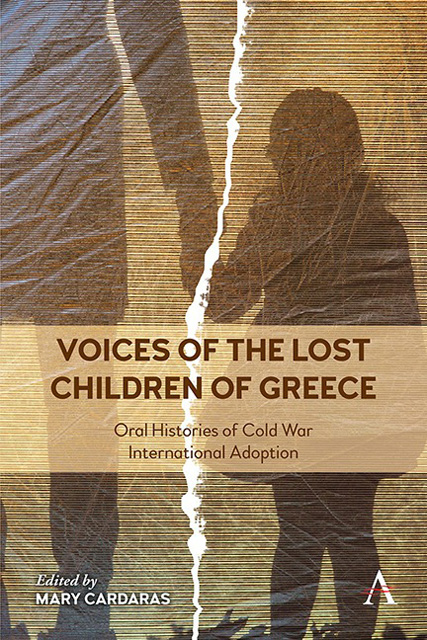Book contents
- Frontmatter
- Dedication
- Dedication
- Contents
- Foreword
- Introduction
- 1 Adoption’s Unfinished Business
- 2 Full Circles and Beyond
- 3 What’s in a Name?
- 4 The Second Beginning
- 5 Questions of the Heart
- 6 The Secret
- 7 A Coffin Full of Secrets
- 8 The Final Goodbye
- 9 Unsettled Soul
- 10 That’s All I Know So Far
- 11 Given, Taken, Never Received
- 12 An Adventure in Identity
- 13 Broken Lines: A Story to Tell
- 14 An Unexpected Journey
- 15 Time Run Out
- 16 Today and Afterward
- Acknowledgments
- About the Editor
- Resource List
4 - The Second Beginning
Published online by Cambridge University Press: 17 October 2023
- Frontmatter
- Dedication
- Dedication
- Contents
- Foreword
- Introduction
- 1 Adoption’s Unfinished Business
- 2 Full Circles and Beyond
- 3 What’s in a Name?
- 4 The Second Beginning
- 5 Questions of the Heart
- 6 The Secret
- 7 A Coffin Full of Secrets
- 8 The Final Goodbye
- 9 Unsettled Soul
- 10 That’s All I Know So Far
- 11 Given, Taken, Never Received
- 12 An Adventure in Identity
- 13 Broken Lines: A Story to Tell
- 14 An Unexpected Journey
- 15 Time Run Out
- 16 Today and Afterward
- Acknowledgments
- About the Editor
- Resource List
Summary
October 1996: Flight from New York to Athens
I met someone once who disliked airports. How is that possible? Air bursting with ions, charging it, making it alive. The most exciting time is the period after the formalities of check-in when all that remains is anticipation. That delicious wait. There is nothing quite like it. Except this time. This wait is particularly hard. The anticipation immeasurable.
We’ve boarded now and are seated. As you face the back of the plane there I am, fifteen rows back and next to the window on the left side, a vantage point, which I will rue during takeoff, but appreciate once we’ve stabilized. On my left are my wife, 7-year-old daughter and 4-year-old son.
Waiting to meet us in Athens will be many relatives, among them my twin brother, fraternal not identical (we look nothing alike), my mother, and any number of cousins, aunts, and uncles.
I have extended family in Greece. Quite a large family, actually. What I’ve neglected to mention, until now, is that three months earlier I did not know any of this family existed. Soon I will meet them for the very first time.
“Robert, please pick up your things, this room looks like a bomb went off.”
Typical mother’s comment, expecting neatness from her 9-year-old.
My thoughts are elsewhere. “I think Dad looks like Grandma, and his brothers look like Grandpa.”
“Sounds right,” she agrees.
“It’s weird not to look like anyone,” I say.
“That’s ok, you’re special.”
Thank goodness that boarding appears to be winding down and we’ll soon be airborne. It will be a long flight. There is a preponderance of thoughts trafficking through my mind.
I imagine people to be like buildings. The foundation needs to be solid or the building tips and waivers. So do people. Blood is the most fundamental connection of all. A visceral, subconscious connection, made not of intellect, but of sinew and tissue, both physical and spiritual. The absence of that foundation causes what can be a lifelong pursuit of equilibrium. The presence of love helps to counterbalance the imbalance, but never completely eradicates it. Nothing can.
- Type
- Chapter
- Information
- Voices of the Lost Children of GreeceOral Histories of Post-War International Adoption, pp. 51 - 62Publisher: Anthem PressPrint publication year: 2023

